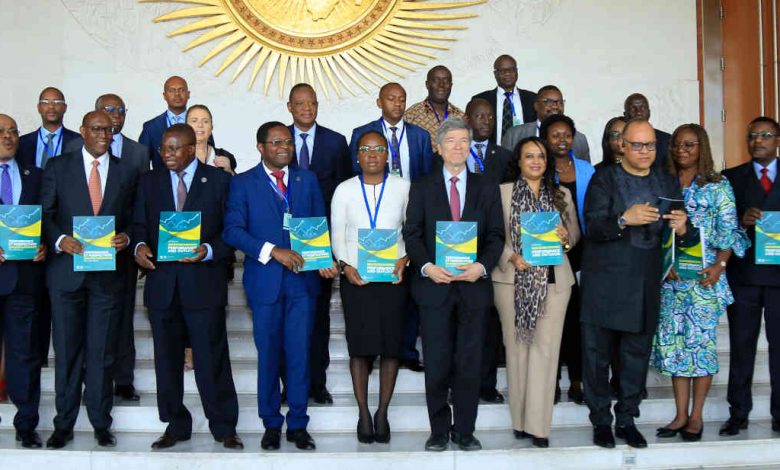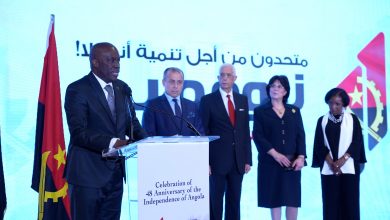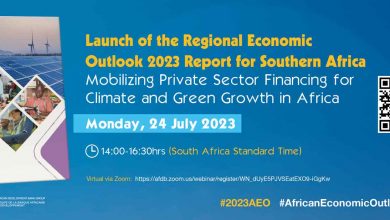Africa’s macroeconomic performance and outlook for 2023: Leaders vow urgent action to support recovery and build resilience | African Development Bank

Diplomat.Today
The African Development Bank
2023-02-18 00:00:00
——————————————-
African leaders have pledged to take immediate action to integrate the recommendations of the recently released reports Africa’s macroeconomic performance and outlook report in their national development plans.
Zambian President Hakainde Hichilema said the study, conducted by the African Development Bank Group, was an incentive for the continent’s leaders to press ahead with necessary reforms. His remarks were read on his behalf by Zambia’s Minister of Finance and National Planning, Dr. Situmbeko Musokotwane, at an event to present the report at the 36th African Union Summit in Addis Ababa.
The Zambian president described the report as an important milestone in the search for evidence-based knowledge to support policy making for a more prosperous and sustainable future for Africa.
“The findings of this important report therefore provide us with a set of concrete policies that we urgently need to implement to support recovery and build resilience in Zambia, and the continent at large,” emphasized President Hichilema. He noted that while Zambia has not been spared global shocks, the country’s economy has shown resilience.
He also acknowledged the impact of Zambia’s heavy debt on the country’s fiscal stability and said his government had launched reforms that would boost economic growth to 4.0 percent in 2023 and 4.3 percent in 2024.
The African Development Bank Group released its inaugural Africa’s Macroeconomic Performance and Outlook report on January 19. Since then, it has attracted much interest from decision-makers in Africa and worldwide.
The semi-annual report provides policymakers, global investors, researchers and other development partners with up-to-date, evidence-based assessments of the continent’s recent macroeconomic performance. It also offers short to medium term prospects.
In his opening address, Moussa Faki Mahamat, chair of the African Union Commission, told attendees that the report would be presented to the heads of state at the African Union summit to help guide national planning.
“Knowledge is power. The report, which is published twice a year, is a wealth of knowledge – with deep insights into what is happening in Africa on a macroeconomic level. It identifies challenges and opportunities for the well-being of our continent,” he said “If governments, the private sector and other stakeholders approve the report, they will be better able to make informed decisions.”
Tea report calls for timely structural reforms to strengthen government-supported private sector industrialization in key areas.
Nigerian Finance, Budget and National Planning Minister Zainab Ahmed said: “All the issues raised in the report also concern our country. We have led the country into the pre-Covid-19 era, but we still face some challenges.”
Ahmed said: “We have asked for a liquidity facility as part of the SDRs (Special Drawing Rights) to act as a buffer for us. We have also asked multilateral development banks to provide us with longer term financing. Nigeria has shown great resilience. We simply need that support to enable us to reach its full potential.”
Akinwumi Adesina, president of the African Development Bank, noted that while African economies have shown impressive resilience, global support is needed to help the continent cope with financial burdens and security challenges.
“Despite the slowdown due to multiple shocks, Africa showed continued resilience in all but one country, maintaining a positive growth rate in 2022 with stable outlooks in 2023 and 2024. African economies are indeed resilient,” said Adesina.
He called for strong and collective support for Africa to help the continent navigate the challenges it faces, particularly debt and vulnerabilities.
The bank president further explained: “Africa cannot run up the steep hill with a bag of debt on its back. Channeling the extra $100 billion in special drawing rights will make a huge difference. We must join forces to seize the enormous opportunities in Africa. There is no doubt that we will make good progress. However, we have to work fast, be inclusive and be competitive.”
Egypt’s Assistant Finance Minister for Policy and Economic Affairs, Dr. Mohammed Ibrahim, also said the report is useful to African policymakers and researchers as a timely database of sound and evidence-based projects for development and planning.
In a presentation, the director of the Center for Sustainable Development, Columbia University, Prof. Jeffrey Sachs, said that Africa has the capacity to grow 7-10% annually.
He noted that Africa could take advantage of its population to grow a robust internal market, citing examples such as China and India.
“Building a single market will position Africa among the three largest global markets. The continent has the greatest growth potential,” he said, challenging African leaders to build vital regional infrastructure and address the infrastructure gaps in the to close in the coming decades. “
He urged governments to lead a revolution to bring about affordable access to health care and education. Sachs called for more funding for the continent to position it on sustainable growth, noting that the African Development Bank is critical to meeting the continent’s financial needs.
“The African Union must become a permanent part of the G-21,” he added.
Acting Chief Economist and Vice President of the African Development Bank, Prof. Kevin Urama, stressed the importance of Africa’s macroeconomic performance and outlook for 2023.
He said: “As we gather here today, global macroeconomic conditions have become increasingly uncertain due to multiple overlapping shocks that make policymaking and investment decisions very challenging. Countries need regular diagnostics and targeted policy action to address these recurrent and overlapping shocks.”
Professor Urama confirmed that Africa remains the place to invest despite global shocks.
What the 2023 Africa’s Macro-Economic Performance and Outlook report says
After two years of global shocks, the report notes that African economies are on the verge of recovering from several domestic and global shocks and returning to a path of economic recovery, stability and growth.
The lingering effects of the Covid-19 pandemic, the devastating effects of accelerating climate change and the impact of rising geopolitical conflicts and tensions have slowed Africa’s growth to an average of 3.8% by 2022.
To support growth, African economies will need comprehensive information and insights to navigate a labyrinth of intertwined global risks, the report said.
The bank will publish the report in the first and third quarters of each year as a supplement to its leading annual African Economic Outlook. The African Development Bank is the first institution to publish macroeconomic outlook for Africa for 2023.
Click here for more information and to download the report
Click here for photos
Click here for videos
——————————————-



